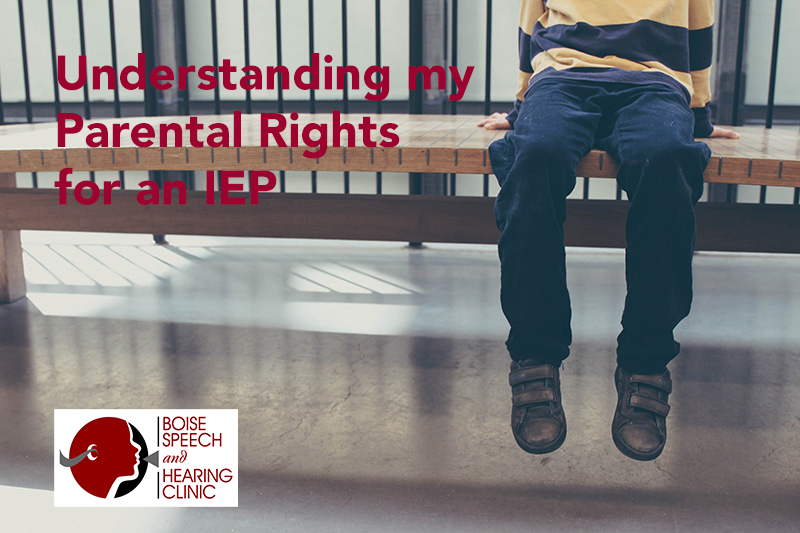If you have ever been to an IEP or 504 meeting then you have probably been offered a booklet titled, Procedural Safeguards Notice For Students With Disabilities And Their Parent, and most of the time you have either declined the booklet or placed it in a stack of papers given to you at the meeting to never be touched again. But what is that booklet? Why is it important? This article will be a brief summary of the booklet and why it is important.
What is the booklet? The IDEA (Individuals with Disabilities Education Act), the Federal law concerning the education of students with disabilities, requires schools to provide the parent(s) of a child with a disability a notice containing a full explanation of the procedural safeguards available.
Here is a quick breakdown of some general information:
- The school district must give you prior written notice if they would like to initiate or change or even refuse to initiate or change your child’s educational placement, evaluation, or identification.
- The notice will describe and explain their proposal.
- The notice will be in your native language and understandable to the general public
- They can notify by e-mail
- Your school district requires consent to conduct an initial evaluation, start services, or reevaluate your child. You have the right to refuse or revoke consent at any time.
- If you disagree with the evaluation conducted by the school district, you have the right to an Independent Educational Evaluation (IEE) at public expense.
Can I access my child’s records? Yes, you have the right to inspect and review records collected about your child. They have 45 calendar days to meet your request.
Are my child’s records confidential? Your child’s educational records are confidential, but different state agencies outside the school district can gain access to them. They are required to give notice to parents about how they will maintain the confidentiality of your child’s records.
Also, all agencies and school districts that have your child’s records must have certain safeguards for protecting confidentiality and destruction of records.
What is the difference between a Due Process Complaint and a State Complaint? A Due Process Complaint can be filed only by you and your school district regarding a proposal or refusal to initiate or change your child’s educational placement, evaluation, or identification. Whereas, a State Complaint can be filed by any individual or organization.
- State Complaints have a time limit of 60 calendar days unless a 60-day extension has been filed. An independent on-site investigation will be carried out and all will have an opportunity to submit information regarding the allegation.
- Due Process Complaints must be confidentially submitted to the other party. 15 calendar days are given to consider if the complaint is sufficient or not. If either party feels it is not sufficient, then a hearing officer has five days to decide if it meets the requirements. Unless the complaining party makes changes to the complaint, then the resolution meeting must be within 30 days of receiving the complaint. If the school district does not sufficiently remedy the problem then the next steps would be hearings and even an appeal process. For more information, please review the booklet.
How does the school handle discipline for a child with disabilities? School personnel may consider removing a child with disabilities who violates a school code from his/her current placement. This removal could be to an alternative education setting, another setting, or suspension. It cannot be for more than 10 school days. The child’s IEP team determines the best interim alternative educational setting.
- If the behavior that violated school code was not a result of the child’s disability, then they disciplinary procedures would be handled in the same manner as a child without disabilities.
- After the child has been removed from their current placement for 10 days in that same school year, and if the current removal is for 10 school days in a row or less, then school personnel, in consultation with at least one of the child’s teachers, determines the extent to which services are needed to enable the child to continue in the general education curriculum and progress in meeting their IEP goals.
If you do not agree with any decision regarding the placement or manifestation determination you can file a due process complaint for your child.
From the booklet…
Determination that behavior was a manifestation of the child’s disability
If the school district, you, and other relevant members of the IEP Team determine that the conduct was a manifestation of the child’s disability, the IEP Team must either:
- Conduct a functional behavioral assessment, unless the school district had conducted a functional behavioral assessment before the behavior that resulted in the change of placement occurred, and implement a behavioral intervention plan for the child; or
- If a behavioral intervention plan already has been developed, review the behavioral intervention plan, and modify it, as necessary, to address the behavior.
Except as described below under the sub-heading Special circumstances, the school district must return your child to the placement from which your child was removed, unless you and the district agree to a change of placement as part of the modification of the behavioral intervention plan.
Special circumstances
Whether or not the behavior was a manifestation of your child’s disability, school personnel may remove a student to an interim alternative educational setting (determined by the child’s IEP Team) for not more than 45 school days, if your child:
- Carries a weapon (see the definition below) to school or has a weapon at school, on school premises, or at a school function under the jurisdiction of the State Educational Agency or a school district;
- Knowingly has or uses illegal drugs (see the definition below), or sells or solicits the sale of a controlled substance, (see the definition below), while at school, on school premises, or at a school function under the jurisdiction of the State Educational Agency or a school district; or
- Has inflicted serious bodily injury (see the definition below) upon another person while at school, on school premises, or at a school function under the jurisdiction of the State Educational Agency or a school district.
We hope this summary helps you understand and better facilities in advocating for your child. We are our child’s best advocates so the more we know, the better we can help them learn and grow.
https://www.sde.idaho.gov/sped/sped-manual/files/chapters/chapter-11-procedural-safeguards/Procedural-Safeguards-Notice.pdf
Photo by Michał Parzuchowski on Unsplash


